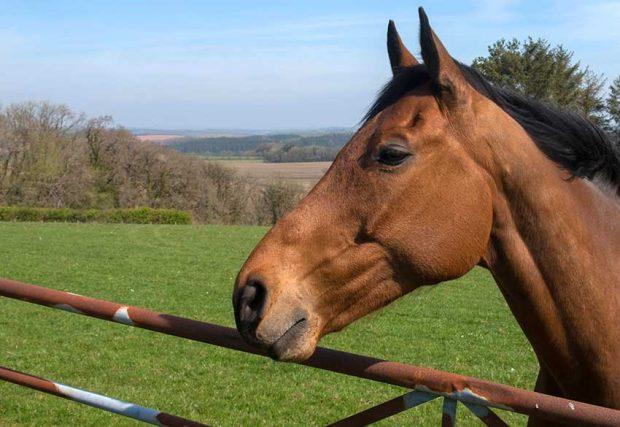Spring Paddock Maintenance
Spring is right around the corner and with new growth appearing it is important to get on top of maintenance tasks within the paddock as soon as possible. One of the most important jobs to start with is inspecting your paddocks. Have a look to see what’s growing, whether the grass looks healthy, can you see small weeds appearing and ragwort rosettes? Other things to keep an eye out for are patches of moss, bare ground and dead thatch. Paddocks are vital to keep in top spec as they provide a lot for their owners including valuable grazing.
Re-Seeding Paddocks
After the winter months it is more than likely that areas of bare areas and poached ground will need re-seeding. Not only does bare patches of ground mean that grazing is reduced for horses and livestock, it also gives way for other less desirable species, such as weeds, to move in. As paddocks often have compacted soil due to constant wear, it may be necessary to loosen or harrow the soil before re- seeding.
Once you have sown the grass seed, it is important that you give it time to grow and establish, so horses need to be kept off it for as long as possible.
At ProGreen we have a variety of different seed mixes that are perfect for use within paddocks, including those without ryegrass, as for some horses that are prone to laminitis this can be dangerous to their health.
Grass and Soil Quality
Throughout the spring and summer, as a paddock owner, you will be relying on the grass to provide a variety of trace elements and nutrients to your horse. Overgrazing, poor soil and bad drainage can all have an effect on the quality of your grass. These factors not only affect the health of the grass but over the long term, lack of nutrition can ultimately lead to health issues with the horses that have grazed the land.
We would advise that you purchase and complete a soil analysis. Not only will this highlight which nutrients your paddock is lacking, you will also get a tailored treatment plan from one of our FACTS trained advisors. This can reduce the inputs you may require for good grass growth, saving money, but can highlight any nutrient excess or deficiencies
Ragwort Control - Essential Maintenance
Ragwort is a perennial problem for paddock owners and with its “Injurious Weed” classification, under the Weeds Act 1959, failure to control ragwort that spreads to neighbouring land can be an offence and result in control orders from DEFRA. Not only does it have this classification, it can also be poisonous to horses and other livestock if eaten – especially when dried.
This is a tough weed to control so it is important to follow our step-by-step guide and problem page to ensure that you get the best results.





